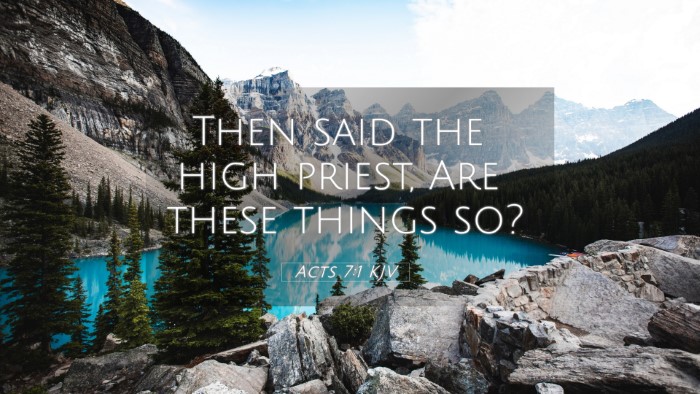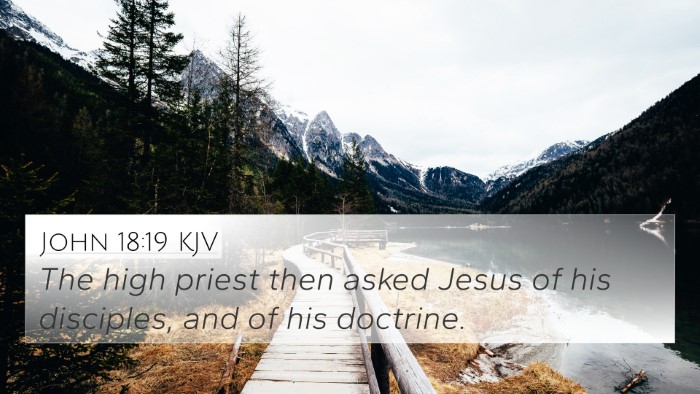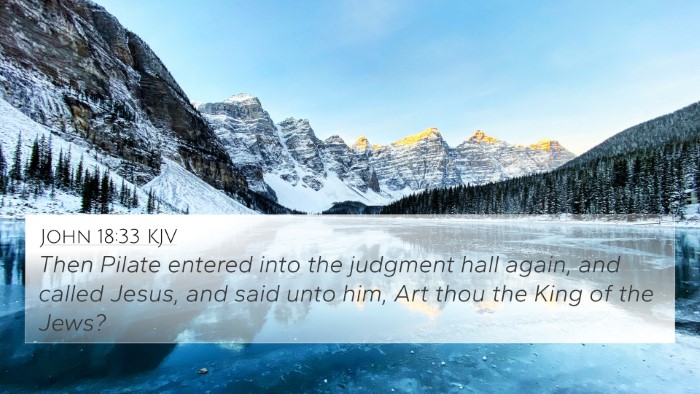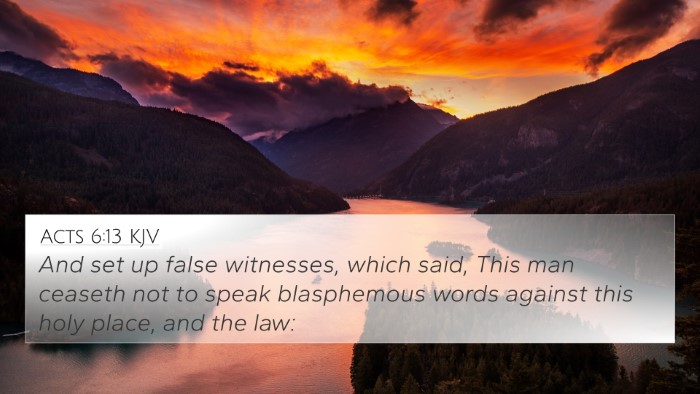Understanding Acts 7:1
Acts 7:1 reads: "Then said the high priest, Are these things so?" This verse sets the stage for Stephen's defense before the Sanhedrin, as he is on trial for his beliefs in Jesus Christ and His teachings. It presents a pivotal moment in the early church and illustrates the tension between the established Jewish authorities and the proponents of the Christian faith.
Context and Background
The context of Acts 7:1 is critical for understanding its significance. Stephen, one of the first deacons, had been preaching about Jesus and performing miracles. His teachings challenged the Jewish customs and pointed to Jesus as the fulfillment of the law and the prophets. As the high priest confronts Stephen, it provides an opportunity for Stephen to articulate his beliefs and the foundation of the Christian faith.
Commentary Insights
-
Matthew Henry:
Matthew Henry notes that the high priest's question indicates a formal accusation against Stephen. This moment calls for a clear presentation of faith and an explanation of belief in Christ, showcasing the courage required in the face of persecution.
-
Albert Barnes:
Albert Barnes emphasizes the importance of this trial as a testimony to the power of the gospel. He identifies that Stephen's eloquence and defense are not just for his vindication but also serve as a proclamation of God’s plan through history, which he restores through an understanding of the Old Testament.
-
Adam Clarke:
Adam Clarke states that the inquiry posed by the high priest represents a critical moment of accusation against Stephen. Clarke emphasizes how Stephen’s defense reveals the continuity between the Old Testament and the New Testament, highlighting God’s unchanging covenantal purpose.
Cross-References for Acts 7:1
Acts 7:1 is related to several key Scriptures that further illustrate its meaning and context. Below are some significant cross-references:
- Matthew 26:63-66: A similar confrontation occurs where Jesus is questioned by the high priest.
- John 18:19-24: Another account of Jesus before Annas, where the high priest interrogates Him.
- Acts 6:12-14: The background leading to Stephen's trial, detailing how false witnesses were arranged against him.
- Acts 7:2-53: Stephen's response providing a sweeping history of Israel and its rejection of God's messengers.
- Hebrews 11:37: References the fate of prophets who were mistreated, similar to what Stephen faces.
- 1 Peter 3:15: Encouragement to always be ready to give a defense, fitting for Stephen's example.
- Luke 21:12-15: Jesus’ admonition to His followers about the trials they will face for their faith.
- Acts 1:8: The call for the apostles to be witnesses, highlighting the role and responsibility of believers.
- Acts 5:27-29: Previous confrontation of apostles with the council, illustrating the recurring theme of opposition.
- Genesis 49:10: Points to the prophetic role of Christ and how Stephen's speech connects to messianic expectations.
Thematic Connections
This verse and its surrounding context underscore several key themes which resonate throughout the Bible:
- Faith Under Trial: Acts 7 illustrates the challenges faced by believers as they stand firm in their faith amidst opposition.
- The Completion of Scripture: Stephen's defense shows how the New Testament fulfills the Old, a common thread throughout the Scriptures.
- Persecution of God’s Messengers: Acts recounts the history of how prophets and faithful leaders have been rejected, culminating in the rejection of Jesus.
- Divine Providence: God's hand is evident throughout history as Stephen recounts the story of Israel, highlighting His enduring faithfulness.
Conclusion
In essence, Acts 7:1 serves as more than just an introductory query; it is a significant moment that propels a profound defense of the faith, illustrating the tensions present in the early church and emphasizing the continuity of God's covenant through history. By examining this verse through the lens of various commentaries and cross-referencing it with other scriptures, one gains a deeper understanding of its implications and the fundamental beliefs of Christianity. This comprehensive analysis, utilizing cross-referencing Biblical texts, provides valuable insights for anyone delving into the Scriptures for study, preaching, or personal growth.







